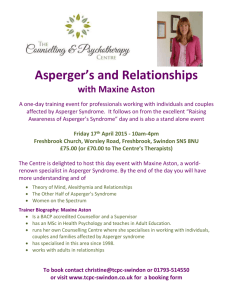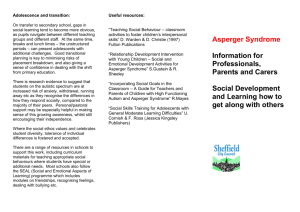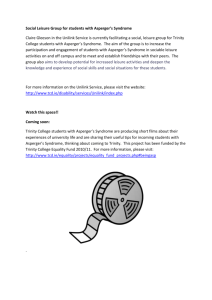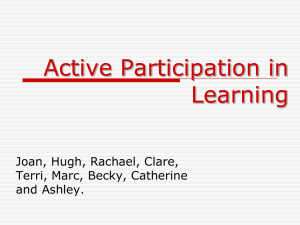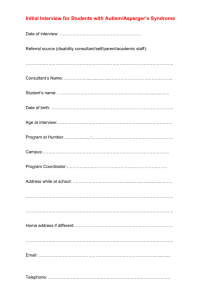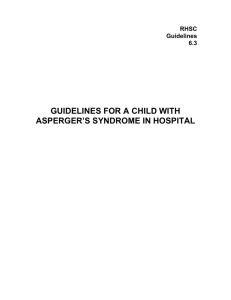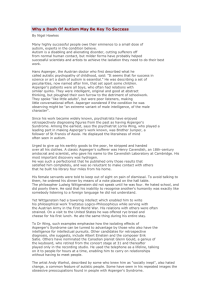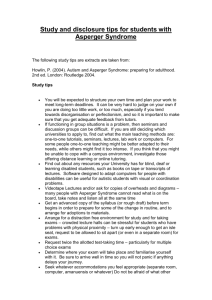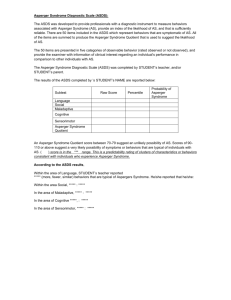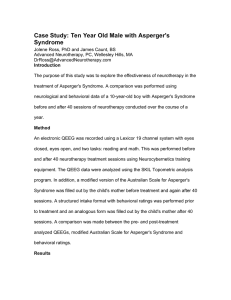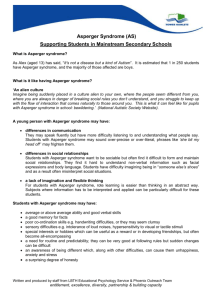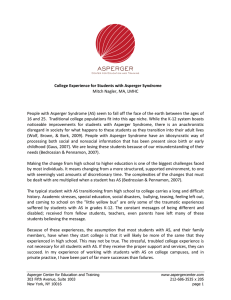Documentation Guidelines for Students with Asperger's Syndrome
advertisement
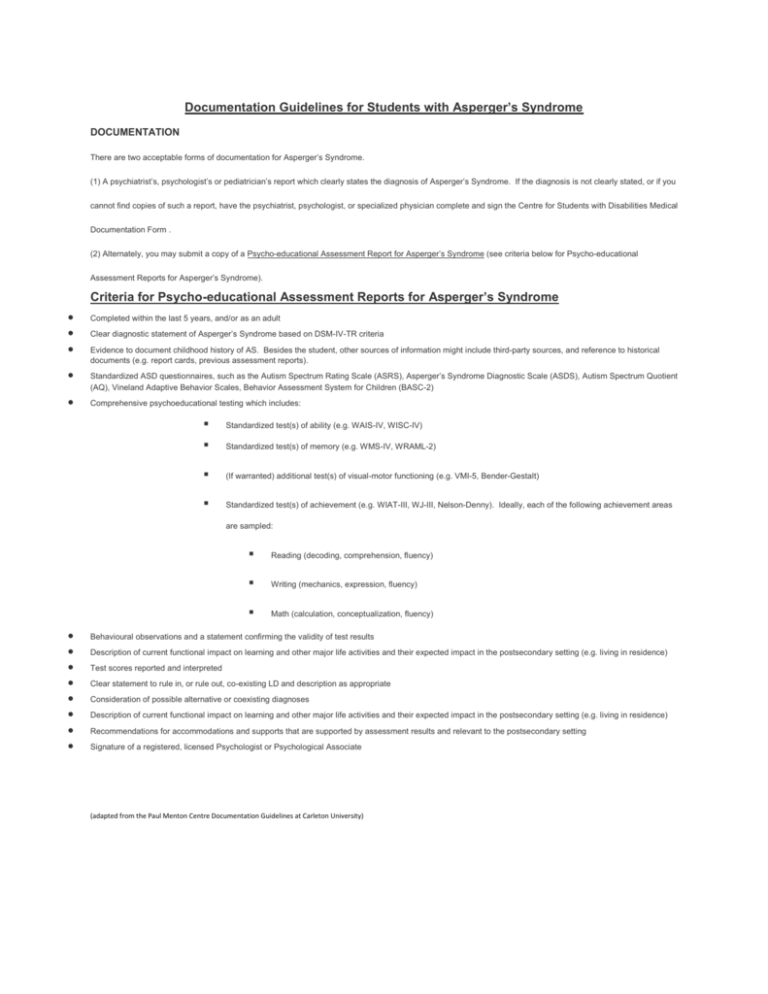
Documentation Guidelines for Students with Asperger’s Syndrome DOCUMENTATION There are two acceptable forms of documentation for Asperger’s Syndrome. (1) A psychiatrist’s, psychologist’s or pediatrician’s report which clearly states the diagnosis of Asperger’s Syndrome. If the diagnosis is not clearly stated, or if you cannot find copies of such a report, have the psychiatrist, psychologist, or specialized physician complete and sign the Centre for Students with Disabilities Medical Documentation Form . (2) Alternately, you may submit a copy of a Psycho-educational Assessment Report for Asperger’s Syndrome (see criteria below for Psycho-educational Assessment Reports for Asperger’s Syndrome). Criteria for Psycho-educational Assessment Reports for Asperger’s Syndrome Completed within the last 5 years, and/or as an adult Clear diagnostic statement of Asperger’s Syndrome based on DSM-IV-TR criteria Evidence to document childhood history of AS. Besides the student, other sources of information might include third-party sources, and reference to historical documents (e.g. report cards, previous assessment reports). Standardized ASD questionnaires, such as the Autism Spectrum Rating Scale (ASRS), Asperger’s Syndrome Diagnostic Scale (ASDS), Autism Spectrum Quotient (AQ), Vineland Adaptive Behavior Scales, Behavior Assessment System for Children (BASC-2) Comprehensive psychoeducational testing which includes: Standardized test(s) of ability (e.g. WAIS-IV, WISC-IV) Standardized test(s) of memory (e.g. WMS-IV, WRAML-2) (If warranted) additional test(s) of visual-motor functioning (e.g. VMI-5, Bender-Gestalt) Standardized test(s) of achievement (e.g. WIAT-III, WJ-III, Nelson-Denny). Ideally, each of the following achievement areas are sampled: Reading (decoding, comprehension, fluency) Writing (mechanics, expression, fluency) Math (calculation, conceptualization, fluency) Behavioural observations and a statement confirming the validity of test results Description of current functional impact on learning and other major life activities and their expected impact in the postsecondary setting (e.g. living in residence) Test scores reported and interpreted Clear statement to rule in, or rule out, co-existing LD and description as appropriate Consideration of possible alternative or coexisting diagnoses Description of current functional impact on learning and other major life activities and their expected impact in the postsecondary setting (e.g. living in residence) Recommendations for accommodations and supports that are supported by assessment results and relevant to the postsecondary setting Signature of a registered, licensed Psychologist or Psychological Associate (adapted from the Paul Menton Centre Documentation Guidelines at Carleton University)
